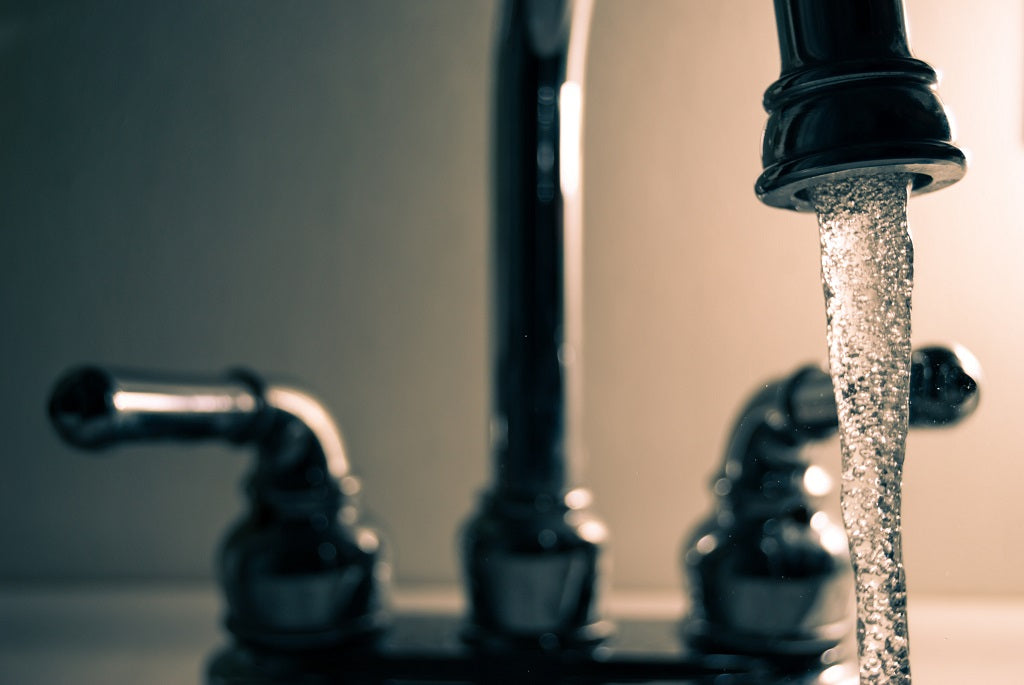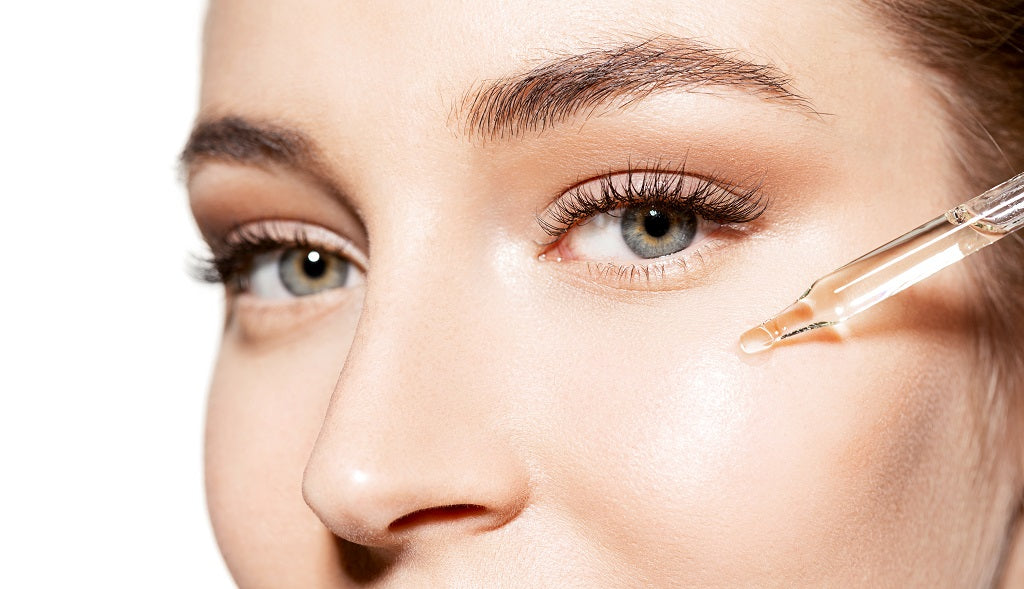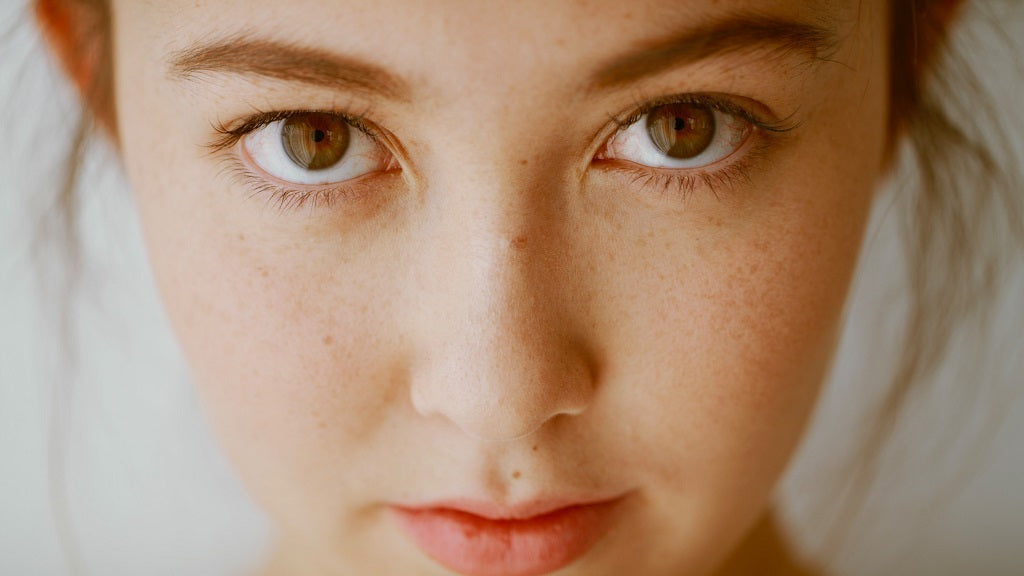You may have a regular haircare routine in place with the products customized as per the density and texture of your hair, but still, you are not getting the desired result. You may have even tried many hair fall solutions, but in vain, then probably the water in your tap is the culprit. It is often overlooked that the state of your water can make your hair products less effective.
Hard water can significantly reduce the efficacy of your haircare products. Many of us may have heard that hard water can damage hair, resulting in hair loss, split ends, and thinning of hair. But what is hard water? How does it affect hair? And, most importantly, what can you do to prevent it from recurring? Don't be afraid if these questions are making you go crazy. We will provide you with in-depth knowledge about hard water, its damaging effect on your hair, and how to prevent hair fall and thinning hair.
What Is Hard Water?

Water with 7 GPG (grains/gallon) is considered to be hard. The concentration of minerals varies from region to region, so water from different regions will be hard or soft. Well water is known to have hard water because of the higher concentration of minerals in well water.
Rainwater naturally collects minerals like calcium and magnesium from rocks, soil, and sand when it filters through them. These minerals can be harmful to your hair, but they don't usually pose a risk to your health. These minerals are accumulated in water and can react with your haircare product to decrease their effectiveness. Even after following the best haircare routine and having the best haircare products, you may be struggling with hair loss, hair breakage and thinning hair ,due to hair dryness. The haircare products that you apply as hair fall solution will not do good to your hair, as it is not able to penetrate the scalp and hair shaft.
Also Read : Reasons for Hair Loss
How Can I Tell If I Have Hard Water Or Soft Water In My Tap?
You need to find out the water content of your area. This will tell you how much mineral content is in your water and whether it is hard or soft. Observe these signs to determine if your water is hard. Look at both the showerhead and the faucets in the bathroom. These spots can become hard to clean because of mineral buildup.. These hotspots may give you a signal that you have hard water. If the glass vessels have stains or spots even after washing, it is a sign that you have hard water.
Signs That Hard Water Is Damaging Your Hair!

The minerals in the hard water react with the shampoo and conditioners, creating a buildup on the surface of your hair. Over a period of time, this forms a film on the scalp and the hair shaft, preventing the absorption of the haircare products, and making the hair product ineffective. These are the four signs that hard water can have on your hair.
1. Dry Hair
You may experience hair dryness because the minerals form a thin film over the surface that prevents moisture from entering the hair shaft. Even the best moisturizing products will not be effective on your hair, and your hair will feel brittle like a straw or a wire. Dry hair is more susceptible to split ends.
Also Read : 4 Best DIY Remedies to Repair Dry, Dull & Damaged Hair
2. Thin Hair
The mineral buildup on your hair affects the flexibility and elasticity of your hair, leading to hair fall and hair breakage.
3. Itchy Scalp
The mineral buildup on the scalp can make your scalp dry, preventing moisture from getting absorbed into the scalp. The mineral deposit on the scalp blocks the hair follicles, thus leading to a dry, itchy scalp.
4. Limp Locks
Mineral deposits on the hair shaft can make your hair look flat and thin.
How Can I Protect My Hair From Hard Water?
The minerals in the hard water can deposit on your hair and scalp, resulting in various haircare issues. But there are ways to counter the damage caused by hard water. Here we share the four best options to try and protect your hair from hard water damage.
1. Chelating/ Clarifying Shampoo
Experts recommend clarifying shampoo/chelating shampoo to counter the effects of hard water on your hair. The chelating shampoo contains chelating ingredients that bind with the metals and minerals in the water and can be washed away. While buying chelating shampoo, look for the terms such as 'detoxifying' and 'clarifying' on the label. Check the list of ingredients to see if EDTA complex or tetrasodium EDTA is on the list, as it is an effective chelating ingredient. The chelating shampoo eliminates impurities and detoxifies your scalp and hair. While using a chelating shampoo, you should be aware that chelating agents can irritate, so that you can use this shampoo once a week.
2. Cider Vinegar Rinse
Acidic ingredients can reverse pH imbalances caused by hard water. Apple cider vinegar is an ingredient readily available in the kitchen. Many DIY hair treatments use ACV effectively to get rid of various haircare issues. To get the best result, unfiltered and unpasteurized organic apple cider vinegar is recommended.
To make an Apple cider vinegar rinse to reverse the damage caused by hard water, mix five portions of water and one portion of vinegar in a spray bottle. Spray your hair, massage the mixture into your ends, and let it sit for 5 minutes.
3. Installing Shower Head Water Filters
These filters are readily available at most home appliance stores in your locality and are very easy to install. Shower head filters filter out the minerals in your water, reducing the mineral content and giving you the advantage of protecting your hair from the damaging effect of hard water.
4. Water Softeners
In the case of hard water, a water softener might be the best choice. You can install water softener systems throughout your house to convert hard water into soft water. The only drawback is that these water softener systems are pretty expensive.
You can try out any of these options you find convenient. But our suggestion to you would be to not use hard water to wash your hair. Afterall, our hair is precious, right? Watching your hair lose its charm isn't the best feeling.
Also Read : Argan Oil for Hair Loss - Natural Remedies and Tips to Treat Hair Loss
Disclaimer: All the content on anveya.com/blogs is solely for information. It is not intended to be a substitute for professional medical advice, diagnosis or treatment. Always seek the advice of your physician or a qualified health care provider. The information, suggestion or remedies mentioned on this site are provided without warranty of any kind, whether express or implied.



